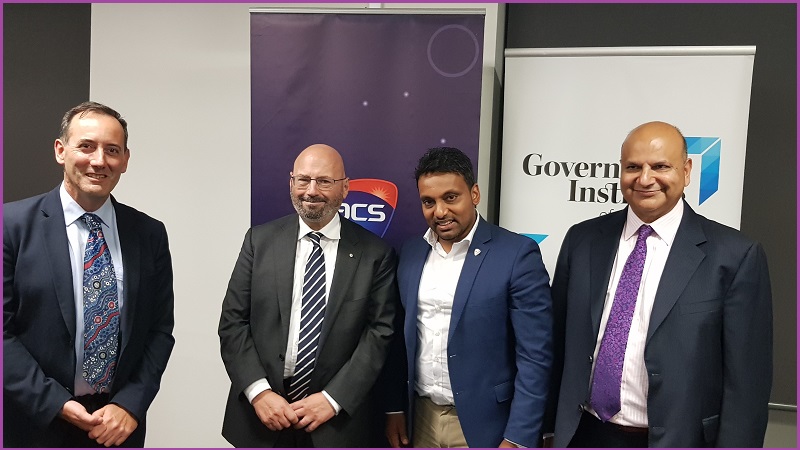There’s a digital cold war underway but, once it’s settled, Australia’s tech and manufacturing industries could be a winner, says the incoming ambassador to the US, Arthur Sinodinos.
Sinodinos, who stood down as Senator last month, was speaking on a panel discussing the risks and opportunities for Australia as relations between the US and China evolve, and described the current conflicts in cyberspace as a ‘semi-cold war’.
"What's happening at the moment is there's already a level of warfare going on,” he told the audience.
“A lot of it is in cyber space and we've had a number of countries and non-state actors interfering with what's going on here, including the Parliamentary systems and possibly with critical systems. That's going on now.
"There's an element of semi cold war, if you like, happening in the background. I don't think there's a chance of a real hot war but what it means is the US, ourselves and like-minded countries have got to push back in areas where we think in military and policy terms China is potentially over-reaching.
"At the same time from Australia's perspective, there's the issue of choice. It's not about us saying we're going to put all of our eggs in the China basket or vice-versa. It's not a binary thing.
"We have a strong military alliance with the US and that's going to deepen. That's not going to change. We want the US to have a presence in the Indo-Pacific."
Once we get through the cyber wars, Sinodinos said he believed Australia is well placed to benefit as China moves up the global value chain as the Middle Kingdom deals with becoming higher cost country with an aging workforce.
Sinodinos flagged quantum computing is one of the areas Australia could lead the field, saying “Australia is potential well placed at the frontier of what could happen.
"Watch the developments at the University of NSW with Michelle Symonds, the former Australian of the Year.”
"We can, if possible, be first to market. We want to be on the ground floor of these sort of developments which are at the frontier of science and innovation and then if we’re on the ground floor we are a preferred partner for multinational companies that are suppliers to China, the US and elsewhere for that sort of thing.”
Sinodinos also flagged the recent $150m Australian government space sector program and the $150bn submarine contract as other drivers for a resurgent smart manufacturing sector.
"The idea is to position ourselves with the capability in industry in these sort of sectors," he said.
"Essentially, we're trying to transition into smart manufacturing, Industry 4.0 and all of that. That's the way of the future.
"It's about positioning us on the leading edge. When the submarines roll out here in Australia, those submarines are about as advanced as any technology in the world, including the space industry."
"So, the benefits for us, is not just to bring back work here and the jobs created in the direct sense. It's also about the potential spin-offs in the technology and innovation. It's also about building up the ecosystem to a self-sustaining basis and that's a big challenge for us but all these bits and pieces are part of that.
Despite the talk of a ‘semi cold war’, Sinodinos was optimistic about the prospects of settling the current US-China trade disputes, saying that talking behind the scenes usually results in better results than public megaphone diplomacy.
"I'm optimistic,” he concluded. “There's no man-made problem that cannot be solved by man."










